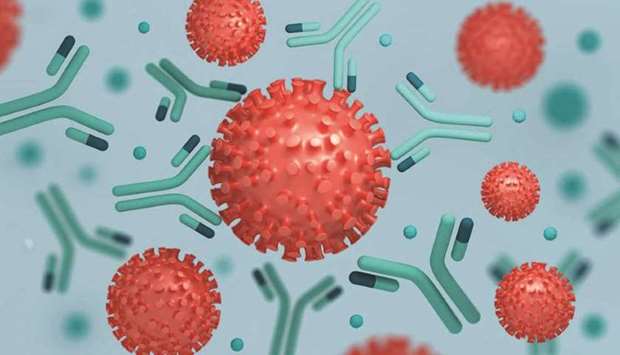Arrival of the highly-mutated Omicron variant is a wake-up call to develop vaccines less susceptible to the rapid changes of the coronavirus, leading virologists and immunologists told Reuters.
Most first-generation Covid-19 vaccines target the spike protein on the outer surface of the Sars-CoV-2 virus used to infect human cells. Omicron has prompted alarm among scientists because it has far more mutations than earlier variants, including more than 30 on its spike.
Research to determine the extent to which Omicron evades immunity from existing vaccines or prior infection is underway. New data on the Pfizer/BioNTech vaccine show some degree of reduced protection with the two-shot regimen.
Even if current shots remain effective for now, the dramatic evolution of the virus highlights the need for vaccines targeting parts of the virus less prone to mutate.
“One thing that is clear from Omicron is that the virus... is not going to go away,” said Dr Larry Corey, a virologist at Seattle’s Fred Hutchinson Cancer Center who is overseeing US government-backed Covid-19 vaccine trials. “There’s a need for better vaccines.”
Since the beginning of the pandemic, the coronavirus has morphed several times including into the more transmissible, globally dominant Delta variant. Still, Covid-19 vaccines have largely maintained their ability to protect people against severe illness and death.
As rapid response tools, the current Covid-19 vaccines are “outstanding,” said Richard Hatchett, chief executive of the Coalition for Epidemic Preparedness Innovations (CEPI), an international coalition formed to prepare for infectious disease threats that has invested in many Covid-19 vaccines.
But more work — and money — is needed to manage the long-term risk. In March, CEPI called for $200mn in funding to develop vaccines that offer broad protection against Sars-CoV-2 variants, and other viruses in the same family such as Mers and Sars.
“We need to keep investing as a hedge against a future that we can’t predict,” Hatchett said.
World Health Organisation chief scientist Soumya Swaminathan says that next-generation vaccines are needed.
“We’re working hard to support that research and development,” Swaminathan said.
Most of the leading Covid-19 vaccines exclusively target parts of the spike protein that provoke strong immune responses, representing an early bet aimed at blocking infection.
The most dramatic of these are the messenger RNA (mRNA) vaccines, which initially had 95% efficacy against symptomatic Covid-19, far exceeding expectations. Their success has added billions in revenue and valuations for developers Pfizer and German partner BioNTech and Moderna.
An exception are Covid-19 vaccines produced in China by Sinovac Biotech and state-owned Sinopharm, which use an inactivated version of the whole Sars-CoV-2 virus, instead of singling out specific genes. Early studies suggested that antibody protection from those vaccines wanes rapidly, and protection may be limited in the elderly.
French biotech Valneva, whose vaccine uses an inactivated version of the whole Sars-CoV-2 virus, in October said its shot outperformed AstraZeneca’s, which targets the spike protein.
More recently, a British study showed Valneva’s was the only shot out of seven that offered no immunity boost when given after two doses of the Pfizer/BioNTech vaccine. Valneva’s vaccine is under review with the European Union’s drug regulator.
For the immediate Omicron threat, most companies are working on new versions of their existing vaccines targeting the variant. AstraZeneca said it will soon have initial trial data on a vaccine focused on the Beta variant, which shares similarities with Omicron. — Reuters

(Representative photo)
